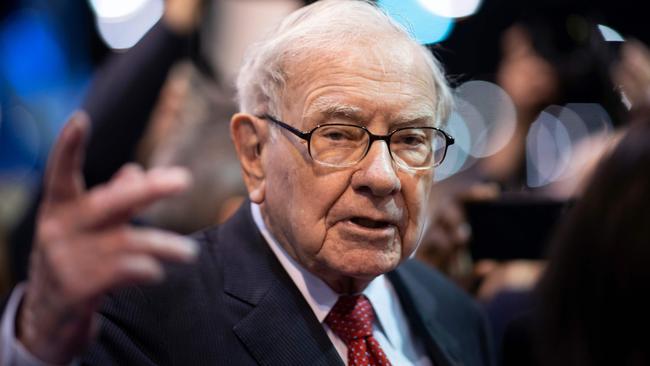Barefoot Investor: How fear of missing out is driving the share market
As coronavirus panic descended it seems low interest rates and the fear of missing out made everyone start buying shares. Whether that was a wise move remains to be seen, writes the Barefoot Investor.

Barefoot Investor
Don't miss out on the headlines from Barefoot Investor. Followed categories will be added to My News.
What the hell is going on?”
It was mid-March — in the depths of the corona panic — and I was in our weekly editorial meeting.
Something weird was happening at Barefoot. While the headlines were full of people hoarding toilet paper, we were seeing a huge spike in people asking me how they could buy … shares?
A few weeks ago ASIC solved the mystery:
The regulator found that daily share trading volumes exploded during the lockdown, driven by a “sharp increase in the number of new retail investors to the market — up by a factor of 3.4 times”.
The same thing has been happening the world over, as virgin investors try their luck trading. In the US, the three biggest brokers signed up over 1.5 million brand-new customers in the March quarter alone.
Where are they getting their money?
Well, “trading stocks” was cited as among the most common uses for the recent US government stimulus cheques in nearly every income bracket, according to CNBC.
So are they little lambs to the slaughter?
Heck no, these first-time traders are swaggering around like big daddy rams!
This week the S&P500 had its biggest 50-day rally in history, climbing a staggering 37.7 per cent.
And that’s:
DESPITE the largest global economic downturn in our lifetime;
DESPITE record unemployment in the US, with 40 million people out of work;
DESPITE rising trade war tensions between China and the United States and;
DESPITE the largest civil riots since the 1960s.
One more time … what the hell is going on?!
Well, share markets around the world are being driven by two acronyms:
FOMO (Fear Of Missing Out), as the US Federal Reserve does everything it can to prop up asset prices.
And TINA (There Is No Alternative), with interest rates low … where else are you going to put your money?
However, there’s one experienced investor who isn’t buying:
Warren Buffett.
The legendary 89-year-old investor has wisely accumulated a $US137 billion cash war chest so he can famously “be greedy when other people are fearful”.
And so, when the Corona Crash wiped 37 per cent off the market, we all assumed he’d be buying up big.
He wasn’t.
Instead, he did the exact opposite, dumping his entire holding of airlines, and more recently selling billions of dollars more of his bank stocks.
At the Berkshire Hathaway annual general meeting in May, Buffett cautioned that the $137 billion cash he had on hand “isn’t all that huge when you think about worst-case possibilities”.
Gulp.
The reaction to Buffett’s caution has been savage.
Many pundits have written him off: He’s too old. He’s too cautious. He’s lost his touch. His (short-term) returns suck.
Then again, the last time the press wrote him off like this was at the height of the Dotcom Bubble …
Right before the market crashed.
And in the decade after those headlines Berkshire Hathaway’s book value per share rose by 88 per cent, thrashing the total index return of just 12 per cent.
So, what am I taking out of this?
Well, a couple of things:
I’m still following Buffett’s longstanding advice and regularly buying low-cost index funds.
However, I’m not getting too excited. I believe there’s a good chance Buffett will ultimately be vindicated and we’ll see shares pull back at some stage.
I’ll leave the last line to the guy who’s delivered a 2,744,062 per cent return over his 55-year career:
“I don’t believe anyone knows what the market is going to do tomorrow, next week, next month, next year.”
Tread Your Own Path!

READERS WRITE
A HOT TIP FOR YOU
DEBRA WRITES: I’ve got a hot tip for you. When comparing car insurance quotes online, put in your neighbour’s address instead of your own.
When I was doing my renewal I gave it a go and, to my surprise, it worked! There was a $350 difference between insuring my car at my house versus five metres over the fence.
BAREFOOT REPLIES: What gives? Was your neighbour a nice little old lady who only drove her Camry to Church on Sundays?
No, but I’m guessing that, unlike you, she was a potential new customer and your insurer was wanting to entice her in with a sweet deal!
As this recession grinds the gears of corporate Australia, you can expect more pineapples like this to pop up.
The ACCC recently released a home loan report which found that “asking their bank for a lower rate, refinancing to another home loan or switching lenders, could result in interest savings of nearly $5000 in the first year alone for an average sized new loan of $386,000”.
So the real “hot tip” is to negotiate like you’re a brand new customer, and save yourself thousands.
TERRIFIED OF DEBT COLLECTORS
JOLANDA WRITES: I am a stay-at-home mum with three kids.
When my hubby and I moved to Brissie a few years ago, we had barely any money, so we got a credit card (and he also had a personal loan from a previous relationship).
We could not keep up the payments, so we went on a debt agreement, but we ended up cancelling it as we could not afford that either.
Long story short, we are now about $60,000 in debt. We have been ignoring calls as we cannot afford payments, and I am terrified debt collectors will come knocking soon. Help!
BAREFOOT REPLIES: Your situation sounds … utterly exhausting.
Here’s the truth: feeling terrified is not conducive to making good decisions.
The debt industry knows this, and they feed this feeling, because it’s the best way to get more money out of you.
That’s why debt collection companies hound you multiple times a day.
That’s why payday lenders like Crime Converters bombard you with text messages on short-term loans.
And that’s how someone signed you up for an expensive magic wand known as a “Part 9 debt agreement”.
Often these debt agreements are sold to people as a way for them to avoid bankruptcy … when the truth is that they are in fact an act of bankruptcy.
In other words, you paid this mob thousands of dollars (that you didn’t have) for something that didn’t work.
So what’s the answer?
It’s time to stop the terror, Jolanda, and get back in control. Rather than ignoring the calls, it’s time to make a call:
First thing tomorrow I want you to call the National Debt Helpline on 1800 007 007.
They’ll put you in contact with someone like me — a free, independent, not-for-profit financial counsellor.
We can stop the calls from debt collectors, banks and other creditors, and negotiate a payment on your behalf.
It’s time to get you back on your feet!

THANK GOD FOR THE COUNSELLORS
SUE WRITES: I just want to encourage you with your financial counselling studies.
I left an abusive 20-year marriage and felt the humiliation of going from being a teacher and university lecturer to a shadow of a woman holding up the supermarket queue as I counted coins for groceries.
I should have stayed in our house. I should have had my own solicitor for the divorce. I should have made a claim on my ex-husband’s business and super.
But I didn’t do any of these things … I was in trauma mode.
My life may have taken a different path if I’d had financial counselling at this critical time.
I think you are brave for what you are doing, and I wish you the very best.
BAREFOOT REPLIES: You totally nailed why I became a financial counsellor.
A lot of my clients have ‘trauma brain’ which affects the financial decisions they make.
It can happen to anyone, even educated, highly qualified people like yourself.
And when you fall into hardship, it’s critical there’s someone in your corner batting for you financially.
Thank you for sharing your story.
If you need support contact 1800 respect
The Barefoot Investor holds an Australian Financial Services Licence (302081). This is general advice only. It should not replace individual, independent, personal financial advice.
If you have a money question, go to barefootinvestor.com and #askbarefoot
The Barefoot Investor for Families: The Only Kids’ Money Guide You’ll Ever Need (HarperCollins)RRP $29.99
Originally published as Barefoot Investor: How fear of missing out is driving the share market
